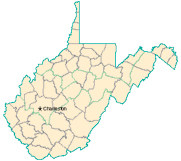 Economically-challenged western New York will take any new high-tech jobs it can find, which is why local politicians threw parties when Verizon announced interest in building a multi-billion dollar data center on the shores of Lake Ontario, in the Niagara County community of Somerset.
Economically-challenged western New York will take any new high-tech jobs it can find, which is why local politicians threw parties when Verizon announced interest in building a multi-billion dollar data center on the shores of Lake Ontario, in the Niagara County community of Somerset.
Covered last fall by Stop the Cap!, the project would have created up to 200 high-paying jobs, representing a feather in the cap for economic development efforts upstate cities have been engaged in even before the Great Recession.
Verizon’s Wish List
Just a few things seemed to be standing in the way, according to Verizon’s lobbyists. Among them, an unfavorable piece of legislation that was pending in 2010, introduced by Assemblyman Richard Brodsky (D-Westchester) and Senator Brian X. Foley (D-Blue Point). New York Assembly Bill 2208/Senate Bill 7263 came in response to watching Verizon selling off pieces of its landline network to Frontier Communications, and both Albany politicians did not want to see a repeat of that in New York State, unless Verizon shared the wealth with ratepayers in the form of credits on their monthly phone bills (or expanded broadband rollout in rural areas of the state).
That bill languished and eventually failed to be adopted by the legislature, so Verizon ultimately had few worries from Albany. But Verizon’s wish list grew longer even as the fall days grew shorter.

The proposed site for Verizon's data center in Somerset, N.Y., which will now continue to offer a clear view to Lake Ontario. (Courtesy: WIVB-TV Buffalo)
The company sought a 20-year payment-in-lieu-of-taxes, or PILOT agreement, getting Verizon off the hook for high New York State taxes — particularly western New York’s property taxes, recognized as the highest in the nation. The company would also be able to obtain cheap hydropower, an important proposition in an area charged some of the highest electricity rates in the country. Verizon even sought a sales tax exemption on building materials and technology to be used inside the new data center. That’s nothing to sneeze at either, considering Niagara County’s 8% sales tax rate.
In all, Verizon would have saved at least $330 million if their wish list of taxes waivers and benefits was approved.
With the help of state senator George Maziarz (R-Newfane), Verizon seemed well on its way to winning those concessions from the state.
And Then Came The Neighbor Across the Street, Ms. Mary Ann Rizzo
As the state worked to fulfill Verizon’s checklist, all seemed on track to break ground until one Somerset resident in her 70s, Ms. Mary Ann Rizzo, began asking some hard questions.
Rizzo owns 116 acres of land across the street. She wondered what kind of impact a multi-billion dollar project like this would have on her and other neighbors, and wanted the state to complete due diligence on an environmental impact review that somehow magically got cut short within five weeks of the application being filed.
She hired attorney Art Giacalone to make sure New York State was following its own procedures in approving the largest project ever proposed for Niagara County in more than a half century. Giacalone found a lightning-fast approval by Somerset town officials and one of the fastest reviews by state officials he’d ever seen.
Rizzo filed suit, but it was dismissed by a judge back in January. Rizzo’s attorney filed a notice of appeal, and Verizon’s attorneys asked the court to speed up the process, something the Rochester judge hearing the case refused.
Within days of that, Verizon announced it was pulling the plug on the data center in Somerset, and Maziarz promptly laid blame at the feet of Ms. Rizzo.
The Misdirected Blame Game
“It just shows you how one person who owns property across the street, doesn’t even live on the property, but just owns property across the street has killed this up to $5 billion project,” Maziarz said. “She is totally responsible for [Verizon’s] decision.”
That set local talk radio afire as local residents vilified Rizzo, as did some in the Buffalo and Niagara Falls press.
Verizon said it was considering taking its data center to Wyoming instead.
While Rizzo was in court and Maziarz was spending time cutting red tape for Verizon, the company acquired Teremark, a very large provider of data hosting services and cloud storage. So large and important that Verizon touted the acquisition as providing at least $500 million in “synergies,” allowing cost-cutting and Verizon to transfer some of its data center needs to Teremark facilities, which is exactly what happened.
In fact, while Verizon was complaining about New York’s foot-dragging, company officials were planning to close several of Verizon’s existing data centers, making the need to break ground for a new one on the shores of Lake Ontario unnecessary.
Wyoming officials rolled out a similar red carpet for Verizon, with Gov. Matt Mead budgeting $14 million towards a data center incentive package. That’s a considerable sum for a state with only a half-million residents.
This week, we learned Wyoming was the second state to be left behind by Verizon, who abandoned plans for the data center proposed near Laramie.
“As a result of the acquisition, we do not have plans at this time to build a data center in Wyoming,” Verizon spokeswoman Lynn Staggs told the Laramie Boomerang. “The Terremark acquisition, announced earlier this year, provides Verizon with the chance to accelerate its data center and cloud strategy.”
In other words, Verizon bought its own solution.
Even if New York delivered on all of the legislative and tax abatement changes Verizon wanted, and Ms. Rizzo never existed, Verizon would still not be spending time on the beach at Somerset or wandering the wide open spaces of Laramie. But they might have walked away with some nice deregulatory parting gifts without having to show a thing for it — gifts that the state of Wyoming already budgeted for companies like Verizon, all for a data center they won’t build.
A tip for rational living: Before handing everything a large telecommunications company wants on a silver platter, get the commitment in writing and be prepared to rescind those offers if the company pulls out.
[flv width=”640″ height=”500″]http://www.phillipdampier.com/video/Buffalo Media React to Verizon Data Center Project Canceled 3-2011.flv[/flv]
Watch as Buffalo’s TV newscasts opened the floodgates for a wholesale blame game over a failed multi-billion dollar project Verizon was unlikely to ever build after acquiring Teremark. (WGRZ/WIVB/WKBW) (15 minutes)


 Subscribe
Subscribe









